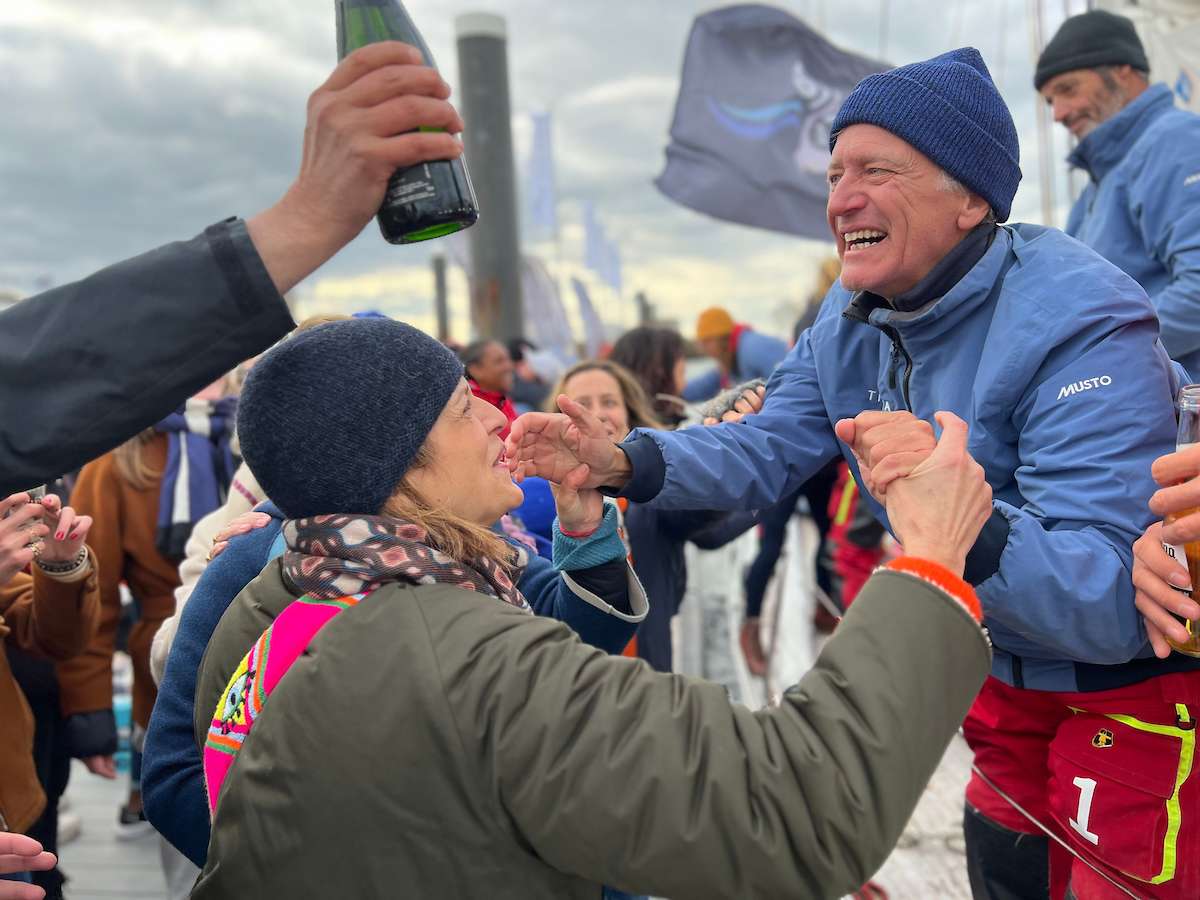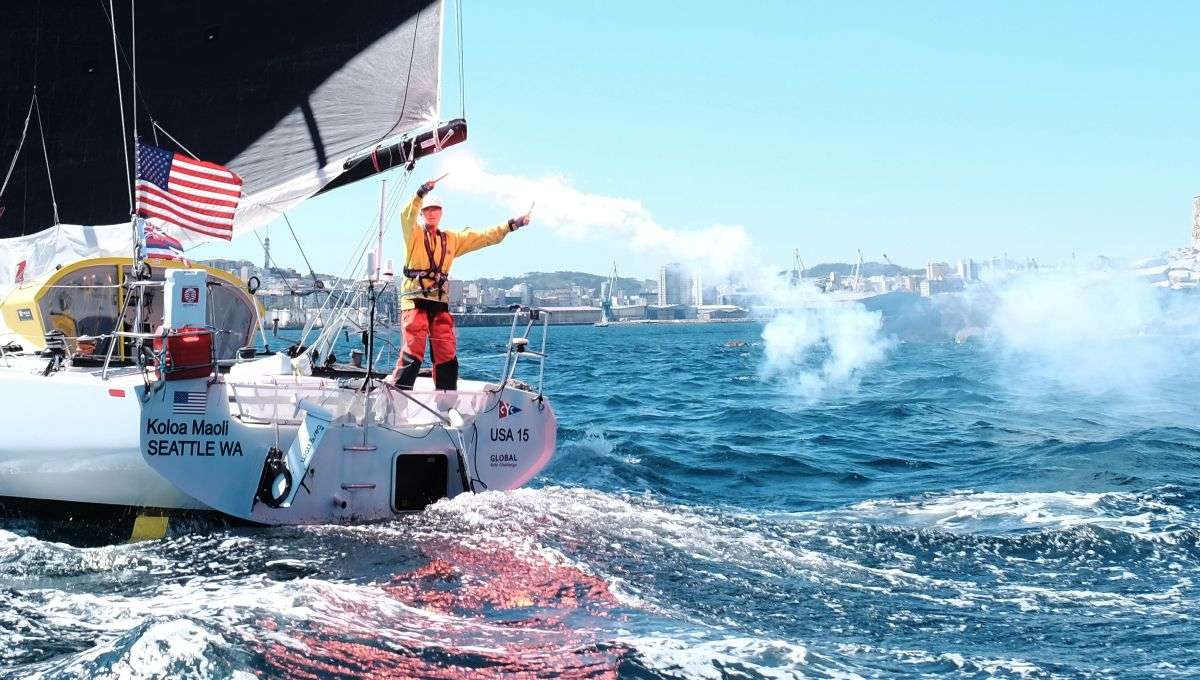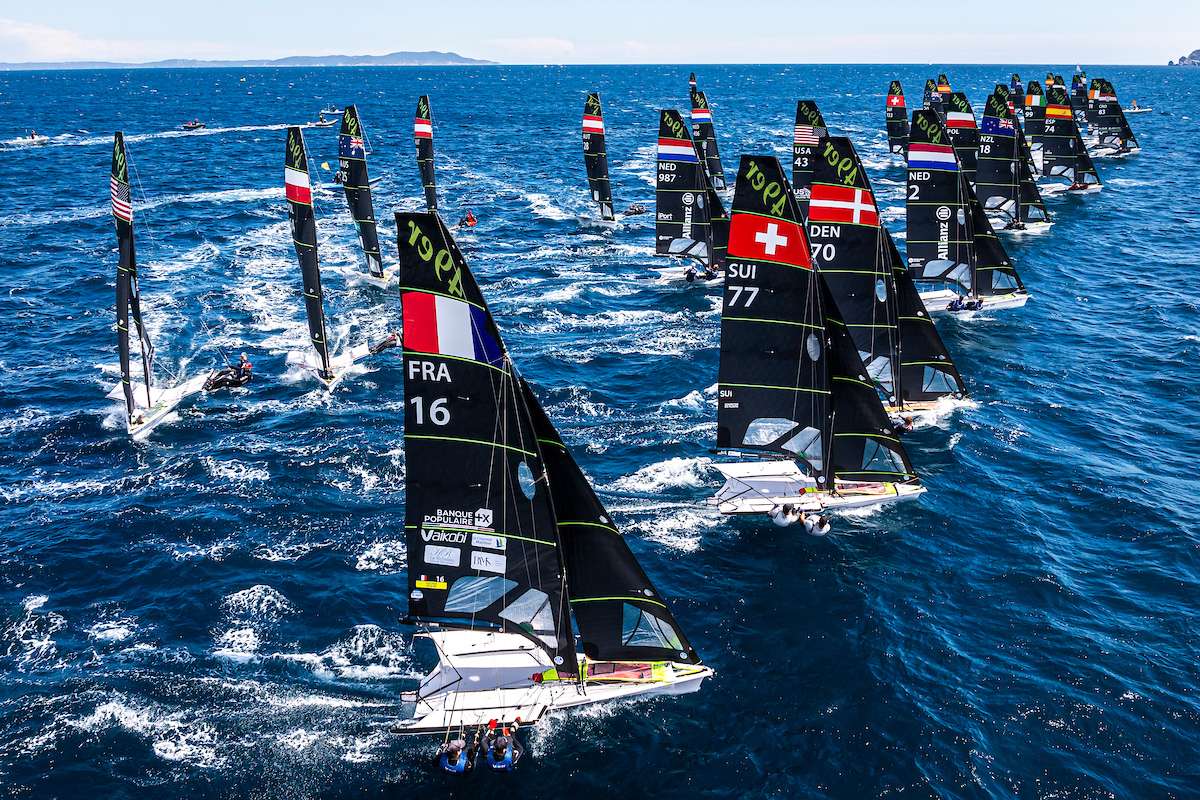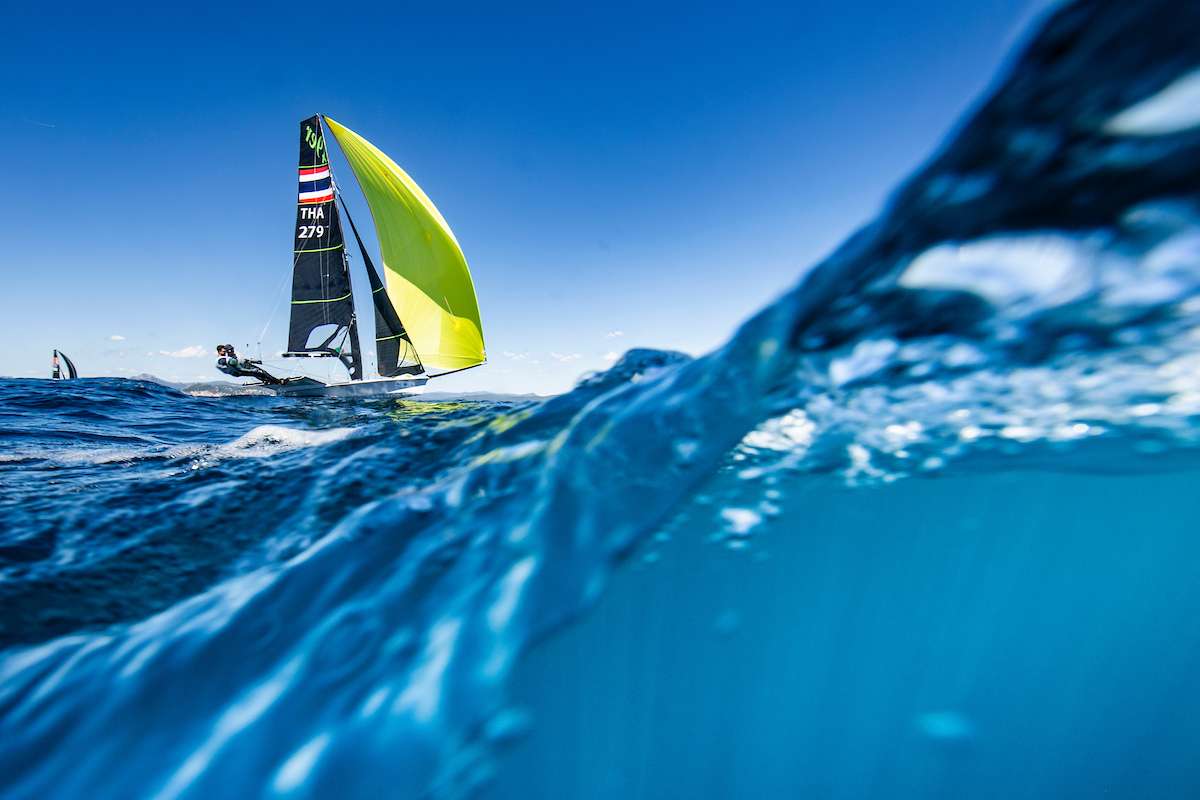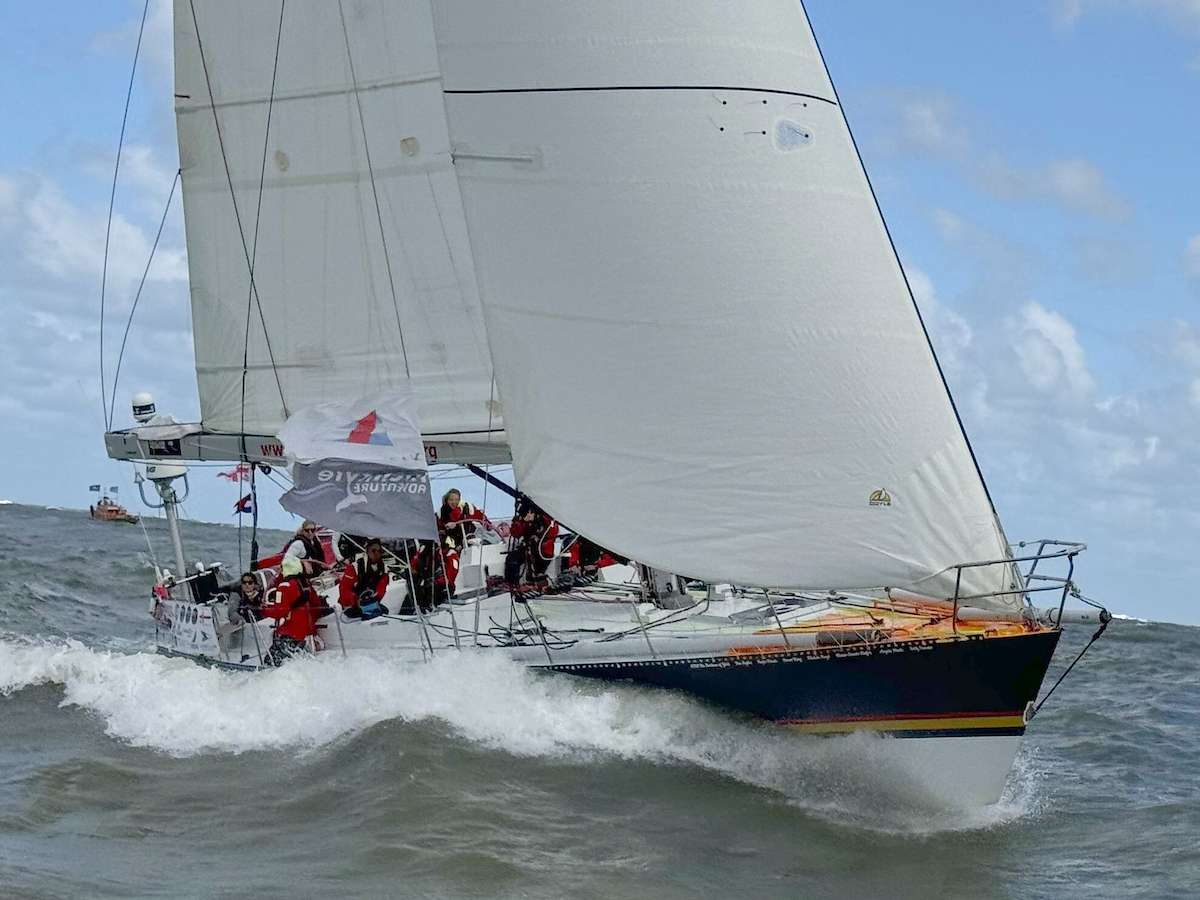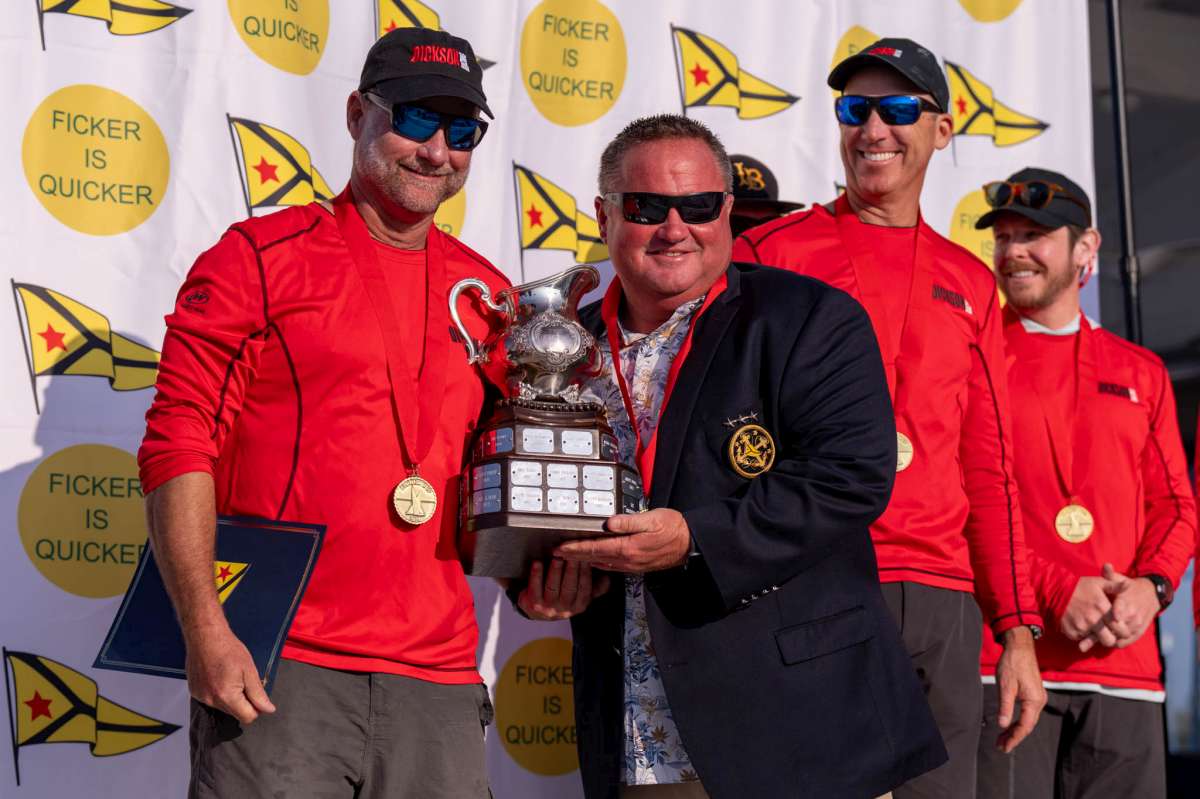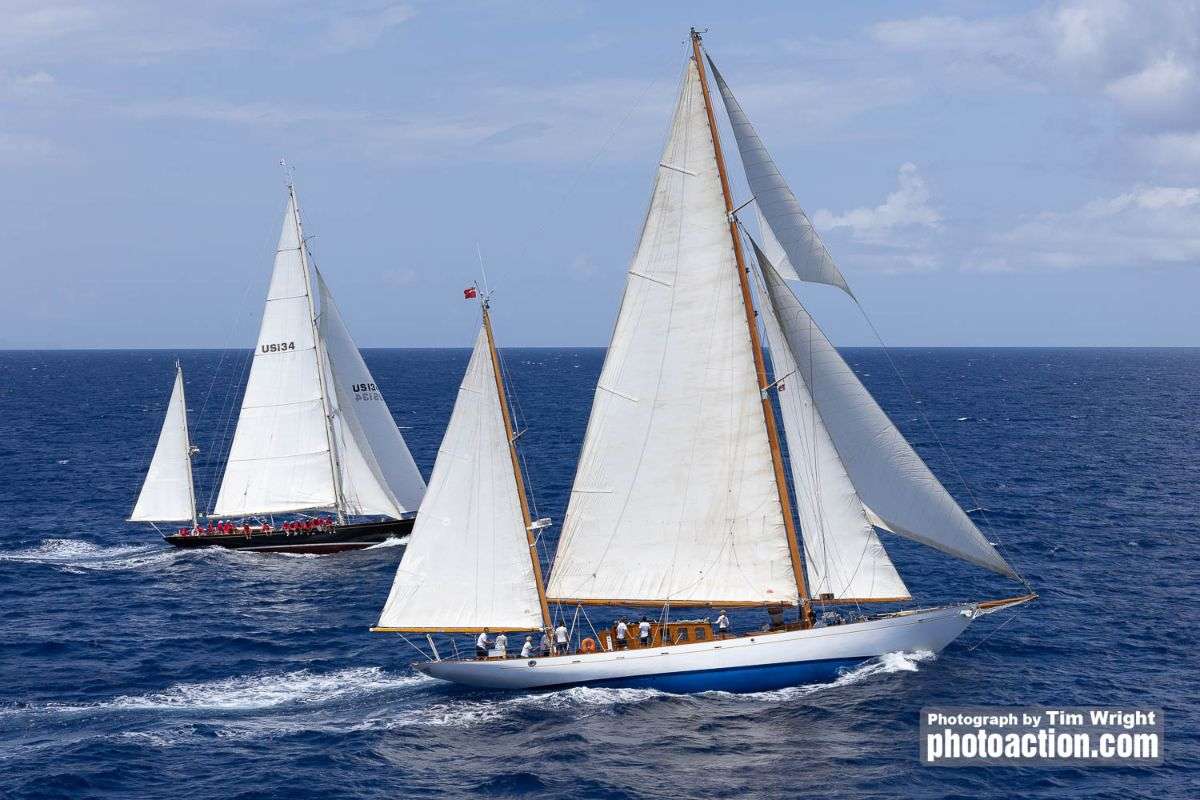The eighth edition of the 3,000nm 2022 RORC Transatlantic Race attracted a record entry of 30 boats racing under the IRC and MOCRA Racing Rules.
The 100ft Maxi Comanche set a new Monohull Race Record and was the overall winner. The top three boats after IRC time correction were Comanche, Scarlet Oyster and Tala who all won their respective classes outside of IRC overall. In the MOCRA Class, three 70ft trimarans had a thrilling finish. After seven days of high-speed boat-on-boat racing, Multi70 Maserati took the line with a magical move, right at the last.
Prior to the start on January 8, teams were based at two Calero Marinas – Puerto Calero and Marina Lanzarote. After finishing the race, Camper & Nicholsons Port Louis Marina welcomed the teams to Grenada with cold beers. The Grenada Tourism Authority presented gift baskets of Grenadian produce to the teams. The start date for the 2022 RORC Transatlantic Race was moved to January and one of the reasons was that the north easterly trade winds are typically more established. However, this was not the case this year, due to several low-pressure systems disrupting the ‘norm’.
The RORC Transatlantic Race Welcome Reception was held 48 hours before the start. Royal Ocean Racing Club’s CEO, Jeremy Wilton greeted all competitors to the race. “This is a big race for the Royal Ocean Racing Club; we have a record entry with past winners and sailors from 27 nations, and these events do not happen without our partners here in Lanzarote and in Grenada. Both the International Maxi Association and the Yacht Club de France have played a significant role in helping to secure a record entry for this year’s race.”
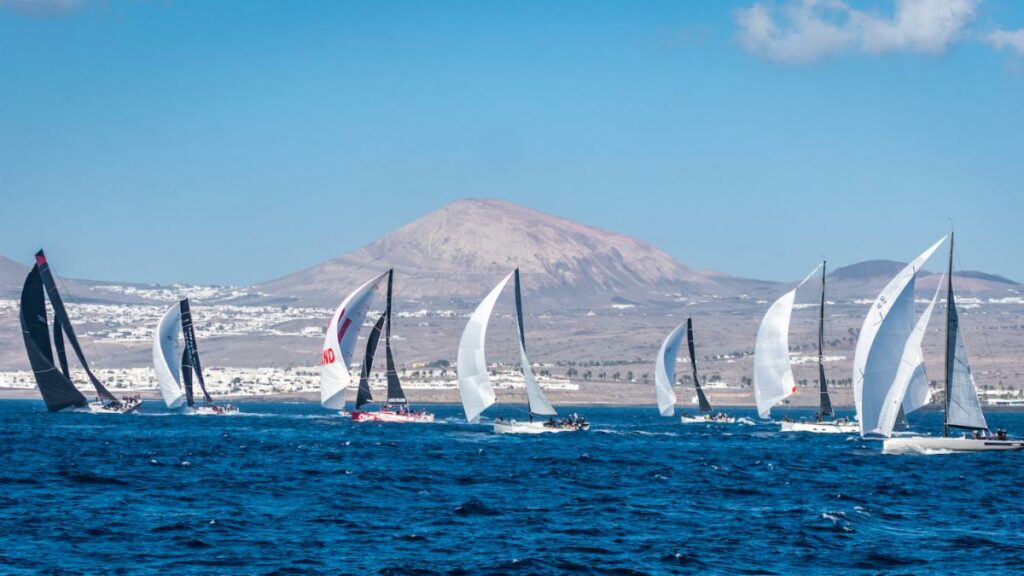
The 2022 RORC Transatlantic Race started on time in glorious conditions outside Marina Lanzarote. José Juan Calero, Managing Director of Calero Marinas commented: “It is fantastic to see the race start in perfect conditions. I speak for all of the team at Calero Marinas and all of the supporters of this race to say we are so proud of how this race has developed. It is an amazing experience for all of the sailors. This is the eighth year we have hosted the start and I thank the RORC for putting their trust in Lanzarote to deliver.”
Comanche on the 2022 RORC Transatlantic Race for overall victory and race record
The 30.48m (100ft) VPLP Design/Verdier Maxi Comanche (CAY), skippered by Mitch Booth lifted the RORC Transatlantic Race Trophy for the best corrected time under IRC and set a new Monohull Race Record of 7 days 22 hours 1 minute 4 seconds. Comanche beat the previous record by over two days and was also the winner of the IMA Trophy for Monohull Line Honours, IRC Super Zero and the Yacht Club de France Trophy. They also established the Fully Crewed IRCRecords™ corrected time record of 16 days 0 hours 12 minutes 57 seconds.
Three teams, all from different IRC classes, produced a thrilling battle for overall victory. Ross Applebey’s Oyster 48 Scarlet Oyster (GBR) was second overall by just over an hour. David Collins’ Botin 52 Tala (GBR) was third, less than two minutes behind Scarlet Oyster after IRC time correction.
Comanche’s skipper Mitch Booth commented: “For any offshore race the aim for Comanche is to take Monohull Line Honours and break race records, which we achieved when we crossed the finish line,” commented Mitch Booth. “Comanche is not optimised for IRC, we just go for speed. So, to win this race overall just ticks every box, which for the owners is just fantastic. They are busy guys with big businesses, but they have followed us every step of the way. Winning the RORC Transatlantic Race Trophy shows just how strong and hard the crew have pushed the boat; we never let up. All credit to Scarlet Oyster and Tala who must have pushed just as hard.”
Magical Maserati takes the multihull match race
For seven days and nights, the three-way battle for Multihull Line Honours was nothing short of astonishing. At the start, Peter Cunningham’s MOD70 PowerPlay (CAY) blasted to the front, with Giovanni Soldini’s Multi70 Maserati (ITA) and Jason Carroll’s MOD70 Argo (USA) in hot pursuit. Both Maserati and Argo sustained rudder damage early in the race but kept up the pressure on PowerPlay.
All three teams headed north looking to hook into a low-pressure system. During the race, the trio recorded boat speeds in excess of 30 knots, often crossing within a mile of each other. With 24-hour runs of over 600nm, the battle was fast and furious.
On day five, the pace began to slow in lighter winds. All three teams had held the lead across the Atlantic, but PowerPlay had been the dominant team. The final twist in the last 150nm of the race decided the battle. The lighter conditions suited Maserati’s fully-foiling set up, despite being over 100 miles behind at one stage, Maserati came back and made a winning call. Choosing to go north of Barbados on the final approach, Maserati stayed in good pressure and got a positive wind shift to head southwest towards the finish.
Maserati took Multihull Line Honours just before dawn on Saturday 15 January and celebrated in style. After eight days of extraordinary racing, Maserati was also the winner after MOCRA time correction.
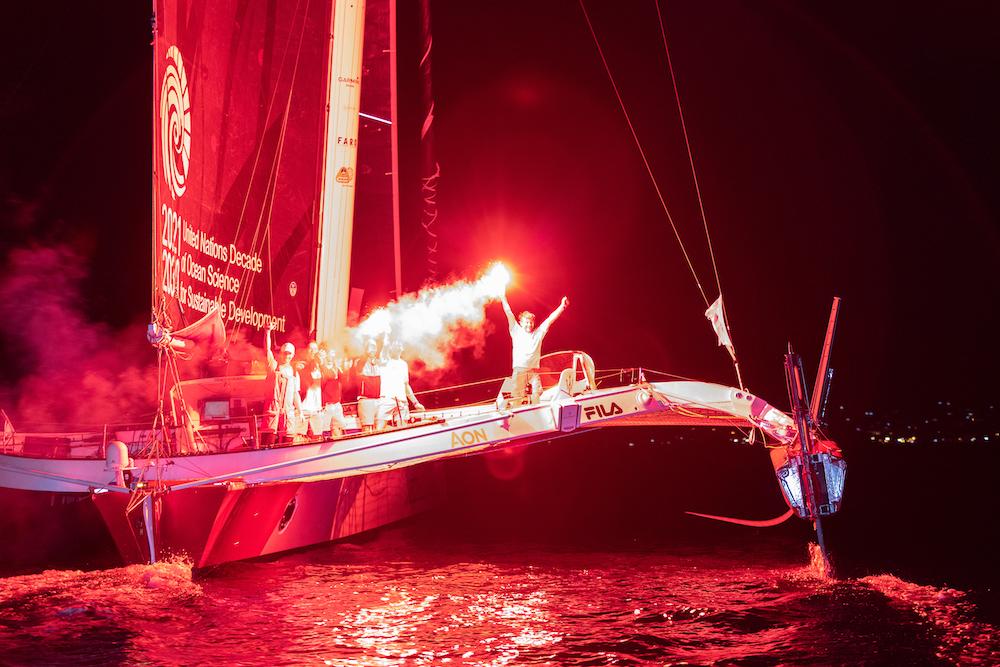
“That was really fantastic,” Soldini commented. “To do a transatlantic race like that with three boats 20 miles from each other is just amazing. We had a big problem the first night as straight away we broke the port rudder (hitting a UFO). However, in the second part of the race, luckily the angle was such that the starboard rudder was in the water.”
Tala wins IRC Zero in a photo-finish
On the 13th day of the RORC Transatlantic Race David Collins’ Botin 52 Tala (GBR) and Max Klink’s Botin 52 Caro (CH) crossed the finish line. Caro was just an hour behind Tala on the water – a virtual photo-finish after over 3,000nm of racing. Tala is the first modified TP52 to even attempt the RORC Transatlantic Race, let alone win class, and is believed to be the first of its kind to complete a west-to-east transatlantic race. Tala decided on a more direct course to Grenada than Caro, but it meant the boat would experience big conditions with 35 knot headwinds, confused seas, and an erratic wind direction.
“Tala is a good boat, but she suffered. We were very confident that she would be able to cope, but unfortunately the electronics on board were taken out by the water ingress. We lost just about all the electrical systems, including the YB Tracker, our ability to download weather data and the position of other boats. We were becalmed for a while, but we then reached out on a good shift and came powering out of the low into the trade winds.
“It was really nip and tuck with Caro. I am very sentimental about this race. Sometimes you get a great boat like Tala and you just want to do it justice. The RORC have done a brilliant job organising this race, it has been a great experience. A massive ‘thank you’ to the Tala crew, they are a solid bunch of lads.”
Scarlet Oyster magnificent in IRC One
On the 16th day of the 3,000-mile race, Ross Applebey’s Oyster 48 Scarlet Oyster (GBR) came in sight of Grenada – peeling to a reaching kite in a dash for the line, with a chance of snatching overall victory from Comanche. Scarlet Oyster was just over an hour short of winning the RORC Transatlantic Race Trophy but did take second overall by a nail-biting 115 seconds from Tala.
“It was so close with Comanche and that had been playing on our minds for the second half of the race. We did all we could, so no regrets,” commented Scarlet Oyster’s Ross Applebey. “The RORC have managed to put their own spin on a transat, with all sorts of weather and angles; it was a bit like a Fastnet! This race was more interesting because of that, and we were constantly watching the clock, obsessively looking for speed.
“This was my 20th crossing but the first time I have done this event. One thing is for sure, it was a very competitive race, which was quite a challenge – that is what the Scarlet Oyster team want for yacht racing.”
Jangada Triumph in IRC Two-Handed
On the 18th day of the RORC Transatlantic Race. Richard Palmer’s JPK 10.10 Jangada (GBR) racing with Jeremy Waitt crossed the finish line to win the IRC Two-Handed Division and place third for IRC One.
“That was an absolutely mental race, racing from start to finish with no let up at all,” commented Richard Palmer. “It was like 16 coastal races back-to-back, downwind racing day after day in sloppy seas. It was full on, really intense, but great fun. If the race had stopped after 1,000 miles, we would have won it overall. However, we could not break through a pressure ridge and watched the bigger boats in front of us get into a lead that we would never catch up.”
“All the way across I have been asking myself why I do this?” Jeremy Waitt commented. “We both felt our age, as the conditions were tough, but we do this for the element of adventure, the remoteness of the Atlantic. This race drives an experience that you cannot get from inshore or coastal racing.”
Viva Chile for IRC Classic Division
Martin Westcott’s S&S Swan 57 Equinoccio (CHI) won the IRC Classic Division for the RORC Transatlantic Race, having completed the race in an elapsed time of 16 days 18 hrs 20 mins. Equinoccio was returning home to Chile following the race after the boat became stuck in Europe during the pandemic.
“We feel so proud about this amazing crew,” Martin Westcott commented. “It was really tough racing; I think we really deserve this trophy. We raced as hard as we could. The crew had a wonderful time in Lanzarote. Now the family has arrived in Grenada and we are going to spend a few days exploring this beautiful place before we sail into the Pacific and back to Chile. We are super-happy with the trophy – Viva Chile!”
Dutch delight
Just after midnight (local time), on January 27, Carlo Vroon’s Dutch Hinckley Sou’wester 52 Diana finished the RORC Transatlantic Race, completing the race an elapsed time of 18 days 16 hours 54 minutes 14 seconds. Having purchased the boat ‘on the spur of the moment’ before the start of the race, he was delighted to have skippered the more cruising-orientated cruiser across for the first time: “The race was absolutely fantastic. We loved the RORC race and I would do it again given the opportunity. Diana is not a race boat, so we were learning to work with her and seeing how she was set up. It’s a wonderful, solid yacht and for this purpose it was fantastic,” Vroon said while dockside at Camper & Nicholsons Port Louis Marina.
“It was a big learning curve for the younger ones in our crew and it was my first time as skipper, so I am pleased that my upbringing with years of seamanship has paid off! I had an excellent crew though and I wouldn’t have done it without them.”
The 2022 RORC Transatlantic Race will conclude with the arrival of the last two boats who both made pitstops for repairs: Baptise Garnier’s Eugenia V (FRA) and, flying the burgee for the Yacht Club de France, Remy Gering, racing his classic yacht Faïaoahé (FRA) Two-Handed. The ninth edition of the RORC Transatlantic Race will start from Lanzarote on Saturday 7th January 2023. For more information about the bucket-list race and the Royal Ocean Racing Club go to: www.rorctransatlantic and http://www.rorc.org/
For the full results, see: http://rorctransatlantic.rorc.org/results/2022-results.html.
All the news and race reports can be found: http://rorctransatlantic.rorc.org/news/race-updates/
Check out the RORC social media: Instagram, Facebook, Twitter and great videos on the RORC YouTube. For satellite tracking go to: www.rorctransatlantic.rorc.org.
By Louay Habib













